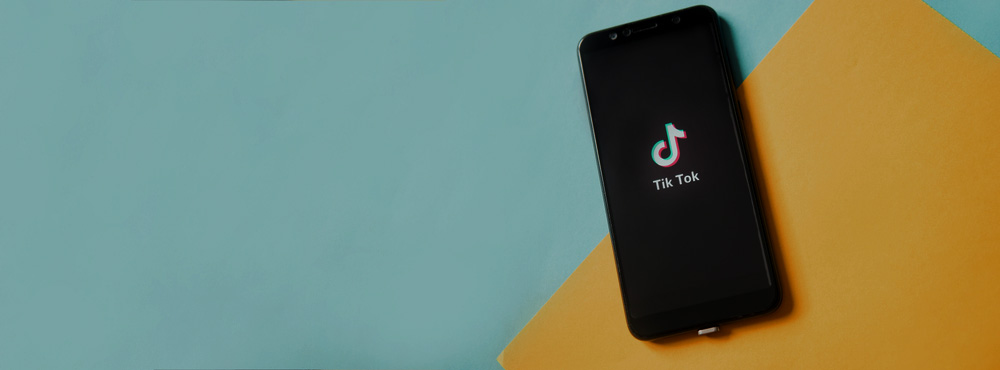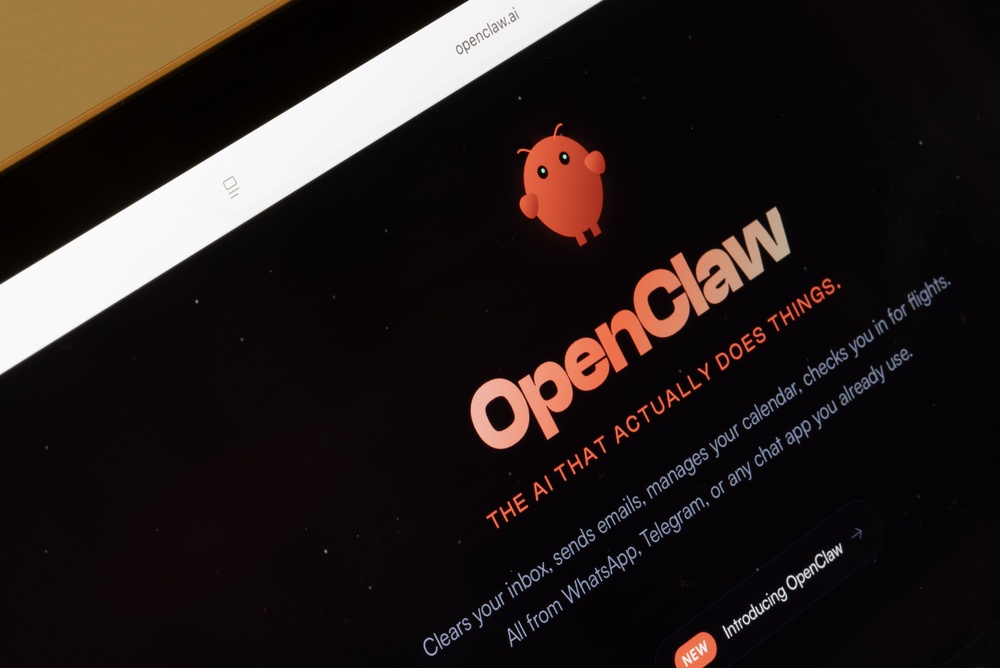TikTok’s ascent into the social media world, dominating engagement rates and winning over young users, has been really quite something. But it’s not for everyone. Should CEOs succumb to the addictive and trendy platform in the hope of captivating an entirely new potential customer base? Callum Booth looks at the pros and cons of CEOs having a presence on TikTok
TikTok is in vogue. The video-driven social network has over 1.7 billion users, predicted to hit two billion in the next year. But TikTok is more than just another growing app; it’s in a league of its own.
Recent figures suggest that, on average, TikTok users spend 95 minutes daily on the platform. That’s just shy of 10% of the average person’s waking hours. That is mind-blowing.
To put that into perspective, Instagram and Twitter users average 51 and 29 minutes, respectively. Let’s also consider TikTok’s demographic spread. The majority of creators on TikTok are between 18 and 24, while 67% of US TikTok users were 18 or 19 (based on 2022 stats).
What does this tell us? TikTok has a huge, dedicated, and young audience. It is a societal force, and for better or for worse, it’s shaping culture. This, therefore, begs the question: should CEOs be using TikTok?
The data suggests so, but we all know that facts and figures don’t always tell the whole story. So how can a CEO make a considered and educated decision on whether or not to get involved? Assured Intelligence has got you. We’ve laid out five reasons why CEOs should be on TikTok and five reasons why they should leave it well alone.
Let’s start with the pros and then bring it crashing back down to earth with the cons.
Five reasons CEOs SHOULD be on TikTok:
1: Connecting with younger generations
The stats above illustrate how perfect TikTok is for communicating with a fresh-faced audience, which is usually a tough demographic to reach.
“TikTok can offer a powerful way for CEOs to humanise themselves and reach a younger audience,” Mike Bush, managing director for Climb Online, a London-based digital marketing agency, tells us.
But what if you think this audience isn’t for you? It’s hard to imagine overseeing a B2B SaaS platform and wanting to extol its virtues to teenagers.
This argument misses two key points. Firstly, you never know where people will end up in five or ten years. So communicating with them at a young age can pay dividends in the future.
Secondly, perhaps more importantly, connecting with people isn’t a one-way street. Being aware of the trends and opinions of younger people can not only help CEOs understand different generations in the workplace but can also be a source of creative thinking, offering new perspectives on various topics.
2: A route to new customers
“A primary part of a leader or CEO’s role is to help raise awareness of the brand or company they represent,” says Ajay Hayre, a recruiter at Robert Walters. He continues, pointing out that “jumping onto an app with 40m+ daily active users” is an excellent way to achieve this.
While TikTok appeals predominantly to the young, hundreds of millions of other individuals still use the app. Because it’s still relatively new and still growing, many of those on the platform are (relatively) early adopters.
A CEO appearing on TikTok can get their brand in front of a tastemaker-filled audience that, due to the nature of the app, will spend more time absorbing what they have to say compared with other networks.
3: Show a more human side of your company
Unprofessionalism is a worry when making TikTok content (we’ll come back to that later), yet CEOs can also benefit from showing a different side of their business.
“Our consumers love to watch behind the scenes of the brand and [meet] the team,” Joy Howieson, CEO of Project Lip, says. “We want to feel more approachable to customers and potential customers,” and “TikTok has enabled us to do that.”
4: Virality
TikTok’s algorithms are finely tuned to find and promote viral content. So, if a company creates content that catches on, it can quickly hit a broad audience.
This can create the sort of buzz that’s borderline impossible to find elsewhere. And we don’t need to tell CEOs how valuable that can be.
5: It’s fun!
Okay, this may seem like a weak argument, but TikTok does encourage a sense of fun and creativity that can be absent from more ‘serious’ platforms.
Its focus on long-form content and combining multiple mediums (text, video, and audio) offers an amazing canvas for companies and CEOs to show their most imaginative and creative sides.
Five Reasons CEOs should NOT be on TikTok:
1: Being cringe
Ah, ‘cringe’, one of Gen Z’s favourite words. This has shifted in recent years from a verb (literally, cringing) to an adjective (“that cringe video”). Fundamentally, the word describes a second-hand embarrassment, often in response to people doing something you would never dream of.
As an older person on TikTok (we’re assuming that most CEOs are above TikTok’s mean age demographic), there’s a risk of being called out every time you post.
This can be avoided by taking advice from people who use the social media platform, but there’s always the possibility of getting piled on by TikTok users and told in no uncertain terms that what you just posted was unbearably cringe. CEOs beware.
2: Unprofessionalism
While TikTok can help leaders reach new audiences, the tone of the platform could be a deterrent to others.
“CEOs also need to be aware of the potential pitfalls [of being on TikTok],” Bush from Climb Online tells us. One of these is “risking a perception of unprofessionalism.”
Generally speaking, a core aspect of the TikTok aesthetic is approachability, a casual way of communicating that can come across as lacking seriousness to certain people. For some in supremely traditional sectors, this can be off-putting.
3: Proximity to controversial content
Another downside that Bush from Climb Online mentioned was “backlash from inappropriate or controversial content” on TikTok.
Because of the platform’s more organic and video-first nature, it’s harder to proof and check than something like a Facebook post, potentially making it easier for inappropriate content to slip through. Nowadays, courting any sort of controversy can be a huge negative that gets endlessly amplified.
4: Security issues
The elephant in the room with TikTok, though, is security. “The UK government has recently taken steps to ban the use of TikTok on official government devices due to privacy and security concerns — and now the BBC has followed suit,” says Prashant Ketkar, Alludo’s chief technology and product officer. Notably, the US is also considering a nationwide app ban.
Ketkar continues, saying, “the line between personal and work devices is often non-existent,” and “companies cannot control which private apps, such as TikTok, they download that might not be secure.”
Hayre from Robert Walters concurs: “The security concerns around TikTok continue to be a grey area. A CEO will hold all sorts of information on their smartphone, so precautions should be taken when downloading any app that harvests a significant amount of data.”
Despite these measures and the narrative around TikTok’s insecurity, there is no clear evidence of TikTok actually doing anything worse than other social media apps. The potential is there certainly, mainly with the app’s relationship with China, but to date, nothing concrete has been proven.
5: Limited business features
Because TikTok is a comparatively new platform, it doesn’t have the sophisticated business features of Facebook or Instagram. These systems exist and have been getting progressively better over the past year or two, but they aren’t quite as sophisticated. Yet.
In a marketing world obsessed with data, this can hinder just how much a company can invest in content for the platform.
We’ve presented the arguments for and against being on TikTok as a CEO, but ultimately, it’s a personal choice. It’s important to balance the type of business and the wants of that target audience and decide whether the potential risks of being on the platform outweigh the rewards. This is something few outsiders can advise you on, and we include ourselves in that category.
Whatever you choose, remember that fortune favours the brave, and there are far worse things in life than being a little cringe.



